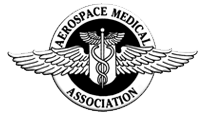Aviation Medical Examiners do not perform formal or complete psychiatric evaluations, the Examiner is expected to form a general impression of the emotional stability and mental state of the applicant.
There is a need for discretion in the Examiner / airman relationship consistent with the FAA’s aviation safety mission and privacy.
Review of an airman applicant’s history as provided on the application form may alert the Examiner to gather further important factual information. Information about the applicant may be found in items related to age, pilot time, and class of certificate for which applied. Information about the present occupation and employer also may be helpful. If any psychotropic drugs are or have been used, the examiner will defer the decision to the FAA who will in-turn investigate. Previous medical denials or aircraft accidents are also considered as they may be related to psychiatric problems.
Psychiatric information can be derived from the individual items in medical history (FAA FORM 8500-8, Item 18). Any affirmative answers to Item 18.m., ” Mental disorders of any sort; depression, anxiety, etc.,” or Item 18.p., “Suicide attempt,” are significant. Any disclosure of current or previous alcohol or drug problems requires further clarification.
A record of traffic violations may reflect certain personality problems or indicate an alcohol problem. Affirmative answers related to rejection by military service or a military medical discharge require elaboration.
Reporting symptoms such as headaches or dizziness, or even heart or stomach trouble, may reflect a history of anxiety rather than a primary medical problem in these areas.
Sometimes, the information applicants give about their previous diagnoses is incorrect, either because the applicant is unsure of the correct information or because the applicant chooses to minimize past difficulties. If there was a hospital admission for any emotionally related problem, it will be necessary to obtain the entire record.
Valuable information is often derived from the casual conversation that occurs during the physical examination. Some of this conversation may reveal information about the family, the job, and special interests. Even some personal troubles may be revealed at this time. The Examiner is discouraged from questions which are stilted or follow a regular pattern; instead, they are encouraged to inquire in a manner that is a natural extension of the Examiner’s curiosity.
Information about the motivation for medical certification and interest in flying may be revealing. While a formal Mental Status Examination may not be necessary. While an examiner may not ask about time, place, or person to discover whether the applicant is oriented, information about the flow of associations, mood, and memory, is generally available from the usual interactions during the examination. Indication of cognitive problems may become apparent during the examination. Such problems with concentration, attention, or confusion during the examination or slower, vague responses will noted and may be cause for deferral.
The examiner typically makes observations about the following specific elements and will note any gross or notable deviations from normal:
1. Appearance (abnormal if dirty, disheveled, odoriferous, or unkempt).
2. Behavior (abnormal if uncooperative, bizarre, or inexplicable).
3. Mood (abnormal if excessively angry, sad, euphoric, or labile).
4. Communication (abnormal if incomprehensible, does not answer questions directly).
5. Memory (abnormal if unable to recall recent events).
6. Cognition (abnormal if unable to engage in abstract thought, or if delusional or hallucinating).
Significant observations during this part of the medical examination will be recorded in Item 60 of the application form. The Examiner, upon identifying any significant problems, will defer issuance of the medical certificate and report findings to the FAA.
It must be pointed out that considerations for safety, which in the “mental” area are related to a compromise of judgment and emotional control or to diminished mental capacity with loss of behavioral control, are not the same as concerns for emotional health in everyday life. Some problems may have only a slight impact on an individual’s overall capacities and the quality of life but may nevertheless have a great impact on safety. Conversely, many emotional problems that are of therapeutic and clinical concern have no impact on safety.
The reasons that an applicant has seen a mental health professional must be revealed, but may be found not to have significance for medical certification. For instance, growth and adjustment problems requiring psychotherapy are usually not considered significant for safety when there have been no vocational disruptions and medications have not been used. This might include marital counseling or psychotherapy for identity problems or issues of growth and personal fulfillment. A history of brief situational problems secondary to such life events as marital disruption, business problems, and the death of loved ones may likewise not be significant. Also, sexual behavior that does not reflect upon overall judgment and self-control is not a concern for safety.
The FAA has concluded that certain psychiatric conditions are such that their presence or a past history of their presence is sufficient to suggest a significant potential threat to safety. Examiners, once aware of any indications of these conditions currently, or in the past, will deny or defer issuance of the medical certificate to an applicant who has a history of these conditions.
An applicant who has a current diagnosis or history of these conditions (listed below) may request the FAA to grant an Authorization under the special issuance section of Part 67 (14 CFR 67.401) and, based upon individual considerations, the FAA may grant such an issuance.
The use of a psychotropic drug is generally considered disqualifying. This includes all sedatives, tranquilizers, antipsychotic drugs, antidepressant drugs (including SSRI’s), analeptics, anxiolytics, and hallucinogens. The Examiner will defer issuance and forward the medical records to the FAA.
1. The category of personality disorder severe enough to have repeatedly manifested itself by overt acts refers to diagnosed personality disorders that involve what is called “acting out” behavior. These personality problems relate to poor social judgment, impulsivity, and disregard or antagonism toward authority, especially rules and regulations. A history of long-standing behavioral problems, whether major (criminal) or relatively minor (truancy, military misbehavior, petty criminal and civil indiscretions, and social instability), usually occurs with these disorders. Driving infractions and previous failures to follow aviation regulations are critical examples of these acts.
2. The category of psychosis includes schizophenia and some bipolar and major depression, as well as some other rarer conditions. In addition, some conditions such as schizotypal and borderline personality disorders that include psychotic symptoms at some time in their course may also be disqualifying.
3. A bipolar disorder may not reach the level of psychosis but can be so disruptive of judgment and functioning (especially mania) so as to interfere with aviation safety. All applicants with such a diagnosis must be denied or deferred. However, a number of these applicants, so diagnosed, may be favorably considered for an Authorization when the symptoms do not constitute a threat to safe aviation operations.
4. Certain personality disorders and other mental disorders that include conditions of limited duration and/or widely varying severity may be disqualifying. Under this category, the FAA is especially concerned with significant depressive episodes requiring treatment, even outpatient therapy. If these episodes have been severe enough to cause some disruption of vocational or educational activity, or if they have required medication or involved suicidal ideation, the application should be deferred or denied issuance.
Some personality disorders and situational dysphorias may be considered disqualifying for a limited time. These include such conditions as gross immaturity and some personality disorders not involving or manifested by overt acts.
Although they may be rare in occurrence, severe anxiety problems, especially anxiety and phobias associated with some aspect of flying, are considered significant. Organic mental disorders that cause a cognitive defect, even if the applicant is not psychotic, are considered disqualifying whether they are due to trauma, toxic exposure, or arteriosclerotic or other degenerative changes.



